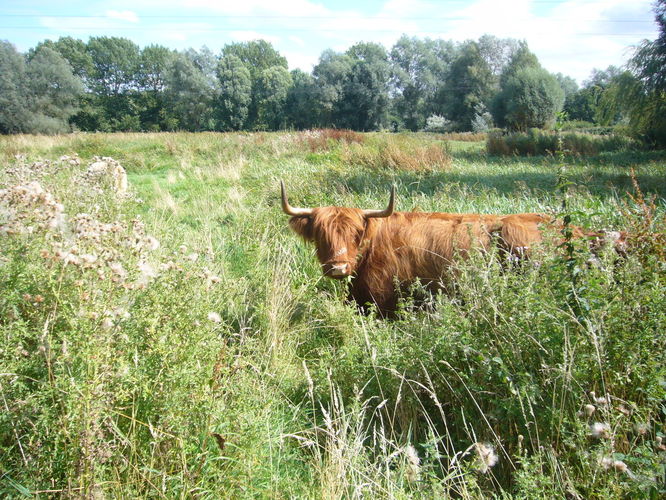The University of East Anglia (UEA) has had an udderly brilliant idea - to in...
The University of East Anglia (UEA) has had an udderly brilliant idea - to introduce cattle onto its Norwich campus to improve the biodiversity of the land.
Four Highland cows have taken up residence in a field at the western end of the university’s land. They will help to manage the diverse flora and fauna of the fenland, flood plain and meadows at the edge of the campus.
UEA is thought to be the first UK University to utilise cattle for conservation purposes on its land.
The project is the brainchild of UEA grounds maintenance manager Oliver Deeming. He said:
“The cattle will graze areas of the land to differing heights, which will help diversify the plants growing in these areas.“Their droppings also act as a catalyst for invertebrate growth - many different bugs and creatures will feed on the dung they produce, and these in turn will provide sustenance for the larger animals on campus such as foxes and badgers. “It will also help us to substantially reduce costs - clearing the fen by hand would take an extremely long time and require many man hours.”
The cows are owned by local farmer Nigel Darling, who is passionate about rare and heritage breeds of livestock. He said:
“I was pleased to loan some of my Highland cows to UEA. Highland cattle are very suitable for rough grazing, as they eat plants such as reeds, in addition to normal grass.“They are also extremely hardy, and do not require accommodation at night or in bad weather. Cows Delia, Cecily, Chocolate and Cornflower – along with Chocolate’s new calf – will be right at home at the university.”
Norfolk Wildlife Trust has been closely involved with the project to restore the fen sites at UEA, which are designated County Wildlife Sites. As well as providing site management advice, the Trust has helped to secure a government grant which will pay for restoration work over the next ten years.
Andrina Walmsley, conservation officer at the Trust, said: “It is just fantastic to see Highland cattle grazing the fens at UEA. Sites like these have been shaped by centuries of grazing, but many are being lost through neglect, or damaged by drainage and tree planting.
“Regular management is essential to prevent them becoming dominated by a narrow range of coarse plant species, and overtaken by scrub. The cattle’s hooves do a great job of breaking up mats of dead vegetation, and stirring up the seedbank in the soil, giving seeds which may have been dormant for many years a chance to germinate and establish. The next few years could be very exciting, as plants which have not been seen for many years start to reappear.’”
The four cows will remain at UEA until the end of the autumn. If the first trial is successful, cattle will return to the university next year, possibly in even greater numbers.











